
La Recoleta: The Historic Heartbeat of Sucre
La Recoleta is a picturesque neighbourhood nestled in the historic city of Sucre, Bolivia. As you wander through its charming cobbled streets, you'll find yourself transported back in time. With its colonial architecture, tranquil plazas, and stunning panoramic views of the city, La Recoleta is a haven for history buffs and culture enthusiasts alike. One of the main attractions of La Recoleta is the Recoleta Monastery. Founded in the 17th century, this beautiful structure offers a glimpse into Bolivia's rich religious and cultural history. The monastery's museum houses fascinating artifacts and artworks that tell the story of Sucre's past. Nearby, the Mirador de La Recoleta provides breathtaking views of the city, making it a perfect spot for photography and relaxation. In addition to its historical sites, La Recoleta boasts a vibrant arts scene. Local artisans and craftsmen showcase their skills in the neighbourhood's many shops and galleries. Visitors can purchase unique souvenirs, from handwoven textiles to intricate jewelry. The area also hosts various cultural events and festivals throughout the year, offering tourists a chance to experience Bolivian traditions firsthand.
Local tips in La Recoleta
- Visit the Recoleta Monastery early in the morning to avoid crowds and enjoy a peaceful experience.
- Bring a camera to capture the panoramic views from the Mirador de La Recoleta.
- Explore local shops and galleries to find unique, handmade souvenirs.
- Check the local calendar for cultural events and festivals during your visit.
La Recoleta: The Historic Heartbeat of Sucre
La Recoleta is a picturesque neighbourhood nestled in the historic city of Sucre, Bolivia. As you wander through its charming cobbled streets, you'll find yourself transported back in time. With its colonial architecture, tranquil plazas, and stunning panoramic views of the city, La Recoleta is a haven for history buffs and culture enthusiasts alike. One of the main attractions of La Recoleta is the Recoleta Monastery. Founded in the 17th century, this beautiful structure offers a glimpse into Bolivia's rich religious and cultural history. The monastery's museum houses fascinating artifacts and artworks that tell the story of Sucre's past. Nearby, the Mirador de La Recoleta provides breathtaking views of the city, making it a perfect spot for photography and relaxation. In addition to its historical sites, La Recoleta boasts a vibrant arts scene. Local artisans and craftsmen showcase their skills in the neighbourhood's many shops and galleries. Visitors can purchase unique souvenirs, from handwoven textiles to intricate jewelry. The area also hosts various cultural events and festivals throughout the year, offering tourists a chance to experience Bolivian traditions firsthand.
Iconic landmarks you can’t miss
Mercado Central
Explore the lively Mercado Central in Sucre, where local flavors, fresh produce, and vibrant culture come together to create an unforgettable market experience.
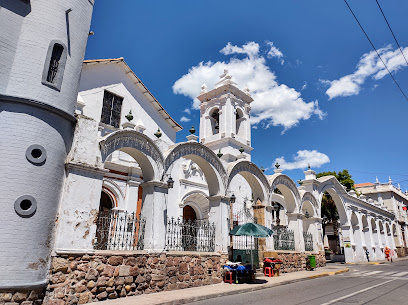
Parque Cretácico
Explore the fascinating world of dinosaurs at Parque Cretácico, a unique national museum and amusement center in Sucre, Bolivia, perfect for families and adventurers.
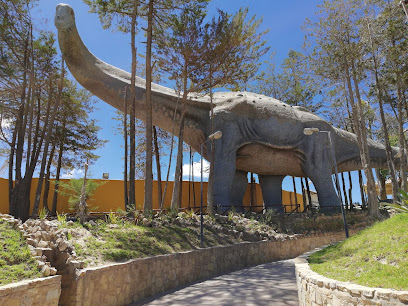
Freedom House
Discover the heart of Bolivia's history at Freedom House, a national museum showcasing the struggle for independence and rich cultural heritage.
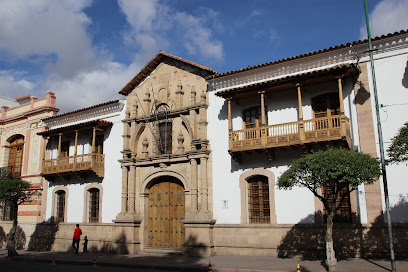
Glorieta Castle
Discover the rich history and stunning architecture of Glorieta Castle in Sucre, Bolivia—a must-visit museum and tourist attraction.
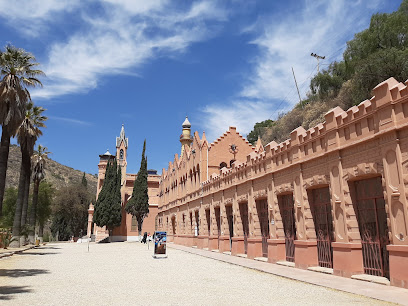
Plaza Pedro de Anzúrez
Explore the lush landscapes and cultural richness of Plaza Pedro de Anzúrez, a tranquil park in the heart of Sucre, Bolivia.
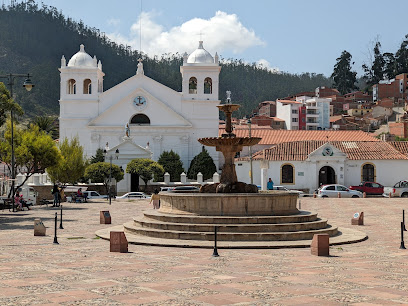
Monasterio de La Recoleta
Explore the stunning Monasterio de La Recoleta, a historical church in Sucre, Bolivia, known for its baroque architecture and serene gardens.
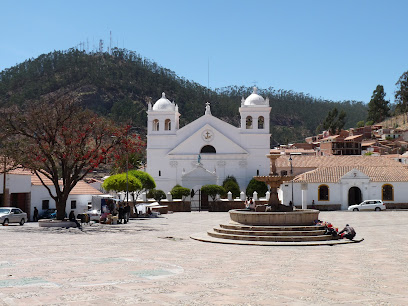
Museo de Arte Indígena
Experience Bolivia's rich indigenous culture and artistry at the Museo de Arte Indígena in Sucre, a vibrant destination for art and history lovers.
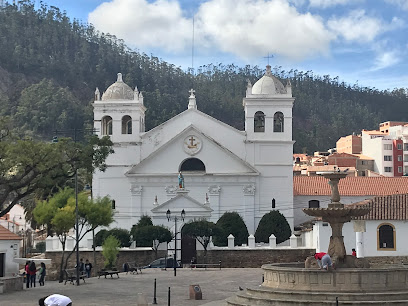
Museum of the Recoleta convent
Explore the Museum of the Recoleta Convent in Sucre, a captivating destination showcasing Bolivia's rich religious art and historical artifacts.
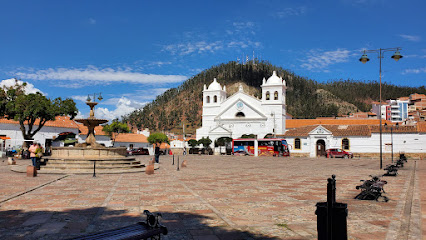
Mirador
Experience the unforgettable views of Sucre at Mirador, a panoramic haven that captures the essence of this historic Bolivian city.
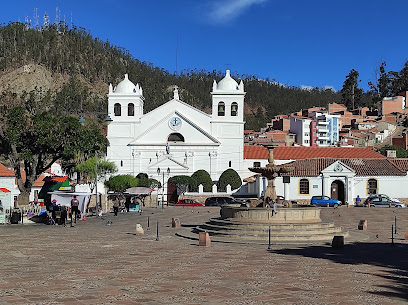
Pasillo de artesanías de Sucre Bolivia
Explore the Pasillo de Artesanías in Sucre, Bolivia - a vibrant market showcasing the best of local craftsmanship and culture.
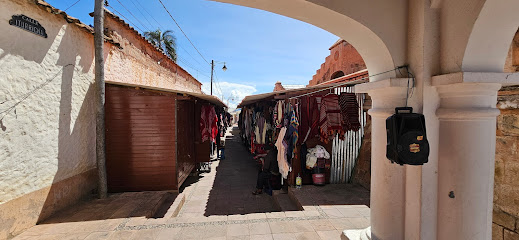
Unmissable attractions to see
Simon Bolivar Park
Explore the natural beauty and cultural vibrancy of Simon Bolivar Park, a serene oasis in the heart of Sucre, Bolivia.
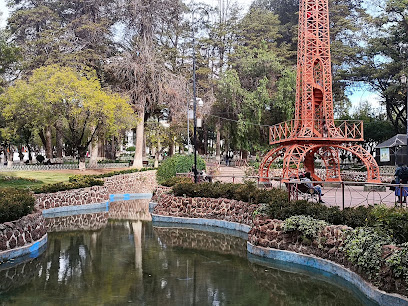
Freedom House
Explore Bolivia's rich history and culture at Freedom House, a national museum in Sucre showcasing independence artifacts and local artistry.
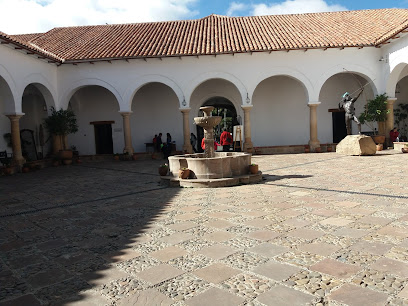
Guereo Mansion
Explore the captivating Guereo Mansion in Sucre, Bolivia - a historical castle blending rich heritage with stunning architecture.
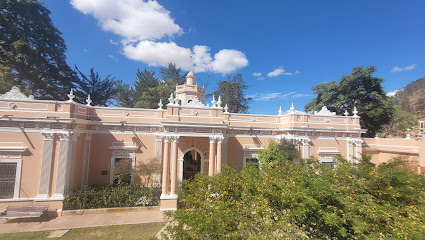
Treasure Museum
Explore Bolivia's rich mining history at the Treasure Museum in Sucre, showcasing exquisite artifacts of gold, silver, and precious gems.
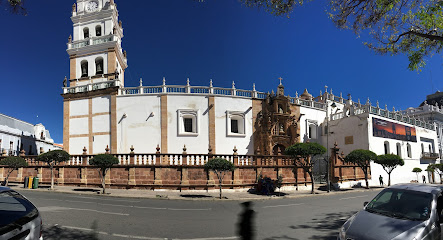
Monasterio de La Recoleta
Explore the Monasterio de La Recoleta, a serene church in Sucre, Bolivia, blending rich history and stunning architecture for an unforgettable cultural experience.
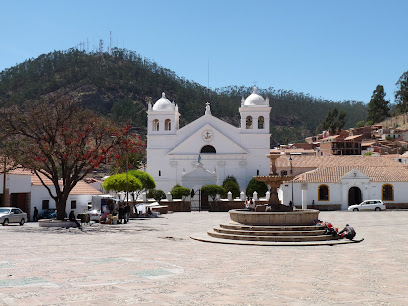
Plaza de la Libertad, Obelisco
Experience the vibrant culture and historical significance of Plaza de la Libertad in Sucre, Bolivia, a must-visit tourist attraction.
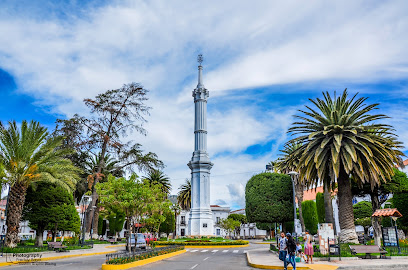
Mirador
Discover breathtaking panoramic views of Sucre at Mirador, a must-visit tourist attraction showcasing Bolivia's stunning landscapes and colonial charm.
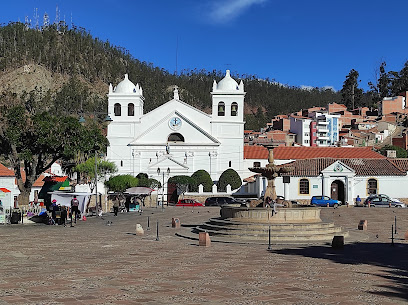
Essential places to dine
Joy Ride Cafe
Experience the vibrant flavors of Bolivia at Joy Ride Cafe in Sucre – where culinary tradition meets modern dining.
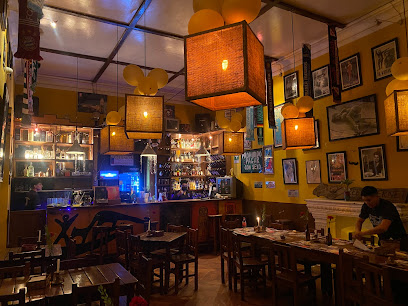
Cosmo Café Restaurant
Experience the best of Bolivian cuisine at Cosmo Café Restaurant in Sucre - where tradition meets modern flair.
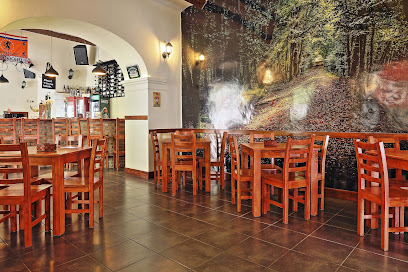
Pueblo Chico
Experience the rich flavors of Bolivia at Pueblo Chico - where grilling meets tradition in Sucre's vibrant culinary scene.
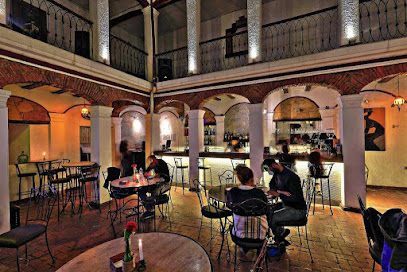
La Taverne Sucre
Indulge in exquisite French cuisine at La Taverne Sucre, where every dish tells a story of culinary artistry amidst Bolivian charm.
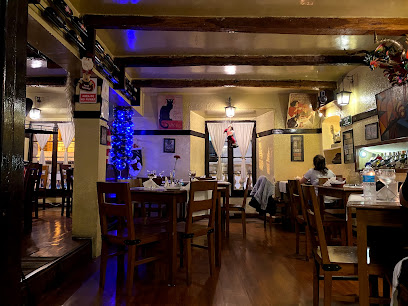
Nacen Del Fuego
Experience the essence of Bolivian cuisine at Nacen Del Fuego in Sucre—where tradition meets innovation in every dish.
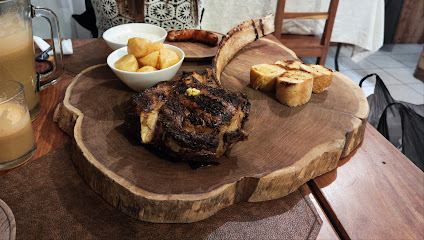
Restaurante La Posada
Discover the essence of Bolivian gastronomy at Restaurante La Posada in Sucre – where tradition meets taste.
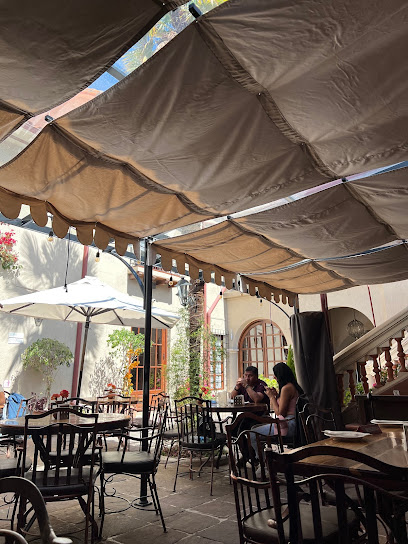
ON Gastro Bar
Discover the culinary fusion of traditional Bolivian flavors and modern cuisine at ON Gastro Bar in Sucre.
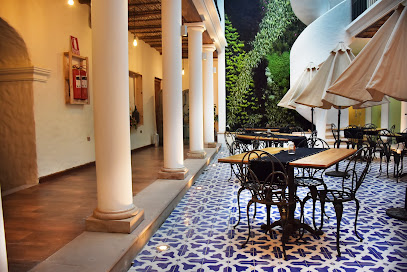
Aosta Caffè Ristorante
Discover authentic Italian cuisine at Aosta Caffè Ristorante in Sucre - where flavors meet tradition.
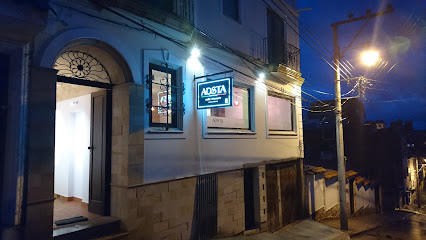
CASTELO
Experience authentic Bolivian flavors at Castelo in Sucre - where culinary tradition meets contemporary dining.
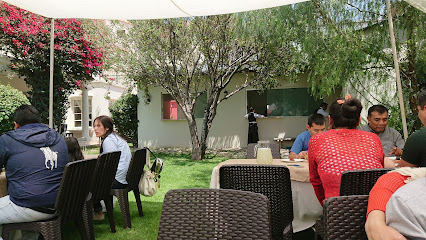
Dining Experience
Discover authentic Bolivian flavors at this charming restaurant in Sucre, offering a cozy ambiance and delicious local dishes.
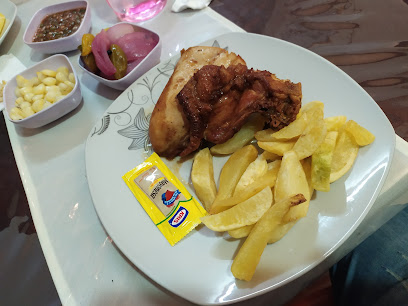
ZAS CHOLITA
Experience authentic Bolivian cuisine at ZAS CHOLITA in Sucre – where every dish tells a story.
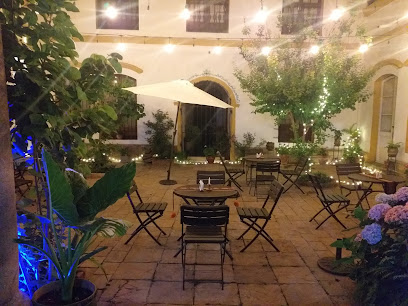
Café-Restaurante AY•NI
Experience the vibrant flavors of vegan cuisine at Café-Restaurante AY•NI in Sucre – where every dish celebrates local ingredients and sustainability.
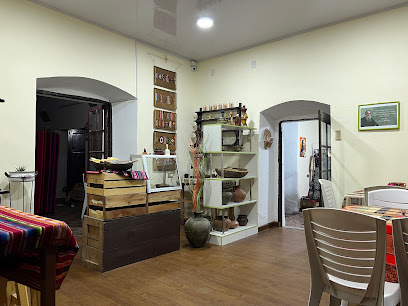
Blue Pastas & Wine
Experience authentic Italian cuisine at Blue Pastas & Wine in Sucre – where every dish tells a story and every sip delights your senses.
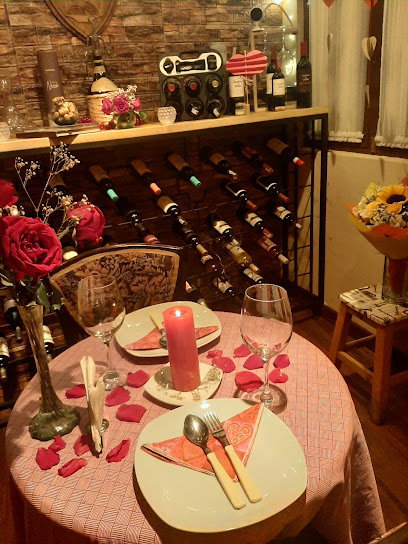
Restaurante 'IA
Experience authentic Bolivian flavors at Restaurante 'IA in Sucre - a culinary gem offering traditional dishes in a cozy setting.
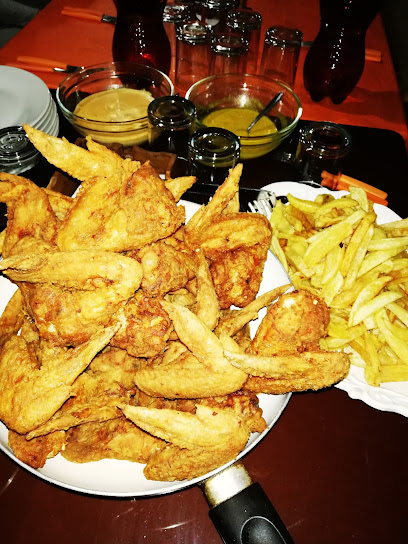
Markets, malls and hidden boutiques
Mayis Store
Explore the enchanting Mayis Store in Sucre for unique gifts, fashion accessories, and magical items that embody the spirit of Bolivia.
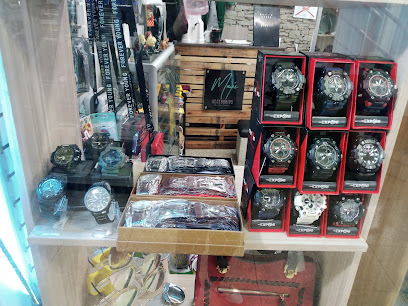
Happy Shop
Discover unique gifts and local handicrafts at the Happy Shop in Sucre, a delightful treasure trove for every tourist seeking authentic souvenirs.

La Rosa del Inca
Explore the cultural treasures of Bolivia at La Rosa del Inca, a charming gift shop in the heart of Sucre offering unique handmade crafts.
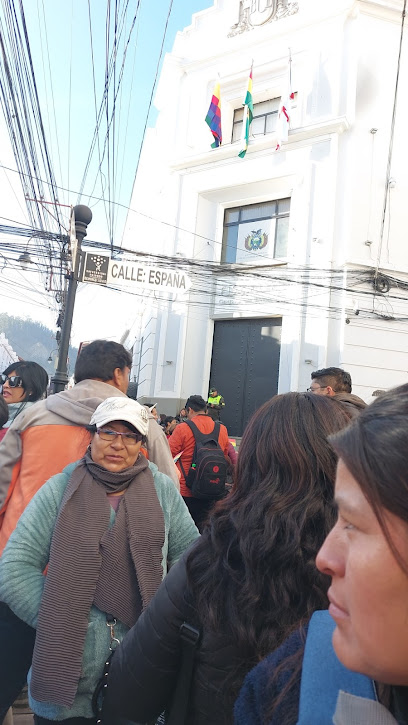
Bee Absolute
Explore Bee Absolute in Sucre for stylish women's clothing that blends contemporary trends with local Bolivian flair.
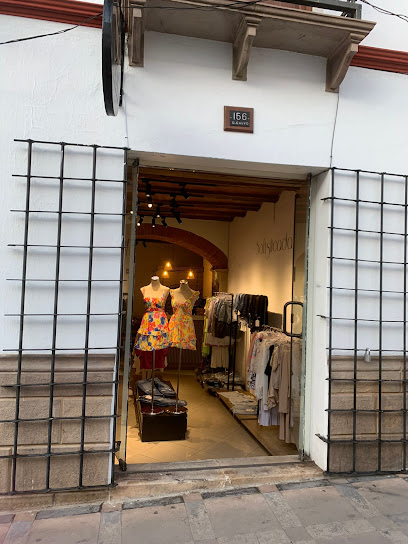
Atelier Boutique
Discover unique clothing and accessories at Atelier Boutique in Sucre, where local craftsmanship meets contemporary fashion.
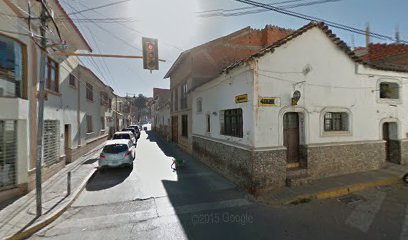
Importados La Plata 2
Discover unique Bolivian fashion at Importados La Plata 2, a clothing store in Sucre offering trendy styles and authentic cultural garments.
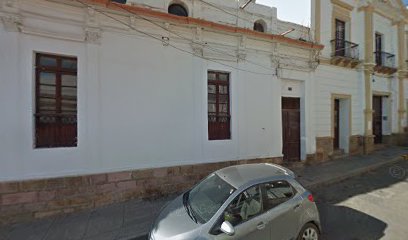
Casaluxe Store
Explore the essence of Bolivia at Casaluxe Store in Sucre, where unique gifts and local craftsmanship come together in a delightful shopping experience.
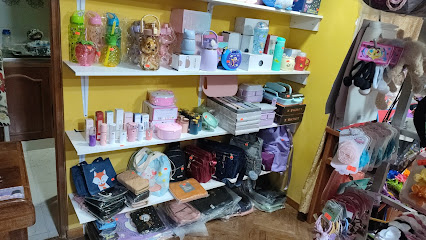
Bershka Sucre boutique
Discover trendy fashion at Bershka Sucre Boutique, where style meets the vibrant culture of Sucre, Bolivia.
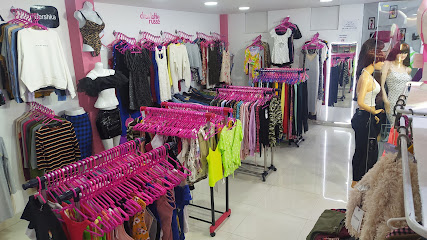
Bolivia mall store
Explore the Bolivia Mall Store in Sucre for unique crafts, fashion, and authentic Bolivian souvenirs that celebrate the local culture.
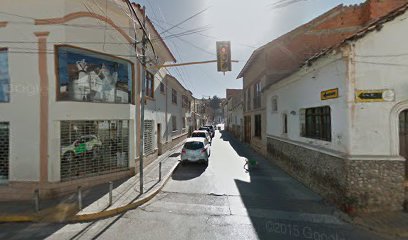
Boutique La Única Atelier
Explore the elegance of Boutique La Única Atelier in Sucre, where unique dresses meet exceptional craftsmanship and personalized service.

Essential bars & hidden hideouts
O´Finnigan´s Irish Pub
Discover O'Finnigan's Irish Pub in Sucre: A Brewpub Offering Delicious Gastropub Cuisine and Vibrant Live Music for an Unforgettable Night Out.
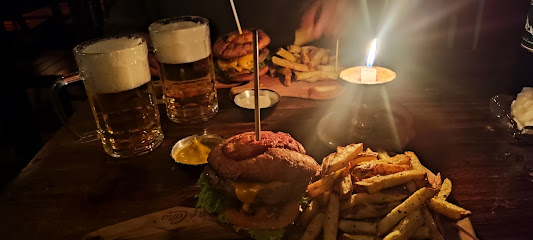
GOBLIN Bar y cervecería artesanal de la casa
Discover the heart of local brewing at GOBLIN Bar, where craft beer meets vibrant atmosphere in Sucre, Bolivia.
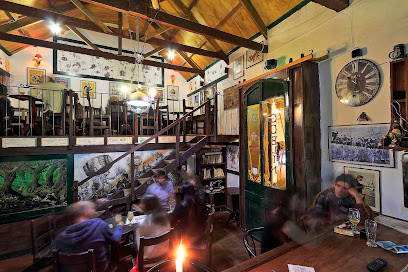
búhoBAR
Discover Sucre's vibrant nightlife at búhoBAR – a lively pub and dance club offering great drinks and unforgettable moments.
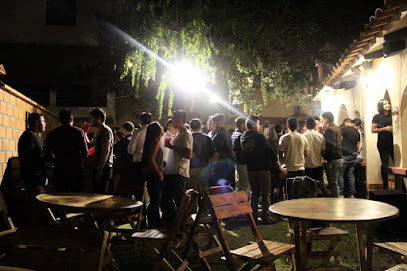
Reset Bar Sucre
Discover the lively atmosphere of Reset Bar Sucre, where karaoke, dancing, and great food collide for an unforgettable nightlife experience.
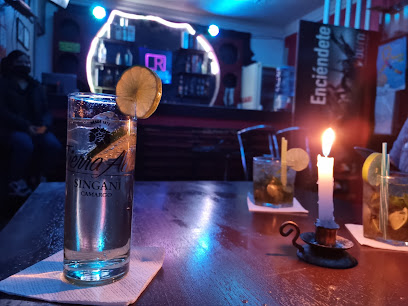
Klasicos Lounge
Discover the vibrant nightlife of Sucre at Klasicos Lounge, where delightful drinks and a lively atmosphere create unforgettable memories.
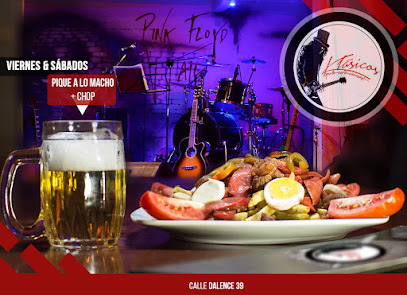
Planeta Pub
Discover the lively atmosphere of Planeta Pub in Sucre, where local flavors and vibrant entertainment create unforgettable nights.
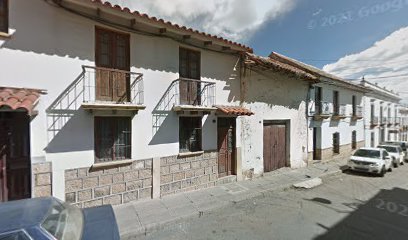
EUROPUB HERACLES
Experience the vibrant nightlife and delicious cuisine at EUROPUB HERACLES, Sucre's top bar and restaurant for unforgettable moments.
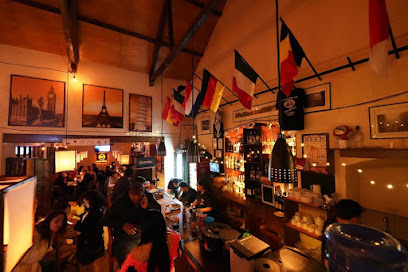
Breaking Bar
Experience the vibrant nightlife of Sucre at Breaking Bar, where great drinks and a lively atmosphere await.
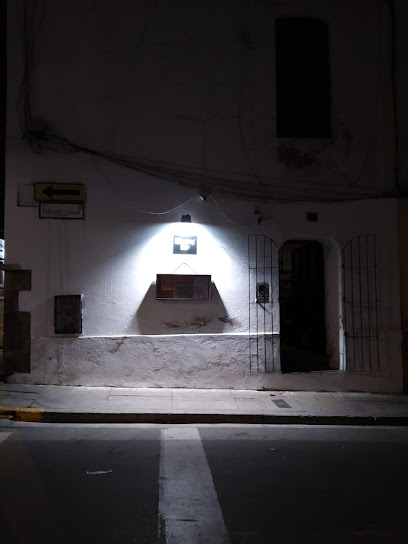
Shisha Bar
Discover the vibrant Shisha Bar in Sucre, a unique gastropub offering an array of shisha flavors and a lively atmosphere, perfect for relaxation and socializing.
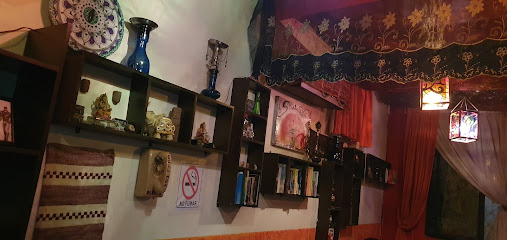
La Naranja Mecánica - Pub Concert
Discover Sucre's vibrant nightlife at La Naranja Mecánica, a bar concert venue where music and culture unite for an unforgettable experience.
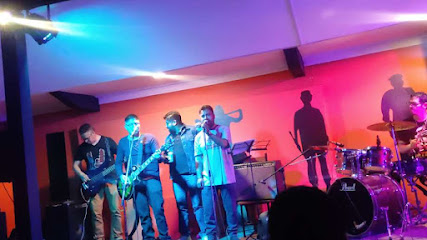
Local Phrases
-
- HelloHola
[oh-lah] - GoodbyeAdiós
[ah-dee-ohs] - YesSí
[see] - NoNo
[noh] - Please/You're welcomePor favor/De nada
[por fah-vor/deh nah-dah] - Thank youGracias
[grah-see-ahs] - Excuse me/SorryDisculpe/Lo siento
[dee-skool-peh/loh see-ehn-toh] - How are you?¿Cómo estás?
[koh-moh ehs-tahs] - Fine. And you?Bien. ¿Y tú?
[byehn. ee too] - Do you speak English?¿Hablas inglés?
[ah-blahs een-glehs] - I don't understandNo entiendo
[noh ehn-tee-ehn-doh]
- HelloHola
-
- I'd like to see the menu, pleaseMe gustaría ver el menú, por favor
[meh goos-tah-ree-ah vehr ehl meh-noo, por fah-vor] - I don't eat meatNo como carne
[noh koh-moh kahr-neh] - Cheers!¡Salud!
[sah-lood] - I would like to pay, pleaseMe gustaría pagar, por favor
[meh goos-tah-ree-ah pah-gahr, por fah-vor]
- I'd like to see the menu, pleaseMe gustaría ver el menú, por favor
-
- Help!¡Ayuda!
[ah-yoo-dah] - Go away!¡Vete!
[veh-teh] - Call the Police!¡Llama a la Policía!
[yah-mah ah lah poh-lee-see-ah] - Call a doctor!¡Llama a un médico!
[yah-mah ah oon meh-dee-koh] - I'm lostEstoy perdido
[ehs-toy pehr-dee-doh] - I'm illEstoy enfermo
[ehs-toy ehn-fehr-moh]
- Help!¡Ayuda!
-
- I'd like to buy...Me gustaría comprar...
[meh goos-tah-ree-ah kohm-prahr...] - I'm just lookingSólo estoy mirando
[soh-loh ehs-toy mee-rahn-doh] - How much is it?¿Cuánto cuesta?
[kwan-toh kwehs-tah] - That's too expensiveEso es demasiado caro
[eh-soh ehs deh-mah-see-ah-doh kah-roh] - Can you lower the price?¿Puedes bajar el precio?
[pweh-dehs bah-hahr ehl preh-see-oh]
- I'd like to buy...Me gustaría comprar...
-
- What time is it?¿Qué hora es?
[keh oh-rah ehs] - It's one o'clockEs la una
[ehs lah oo-nah] - Half past (10)Las diez y media
[lahs dyehs ee meh-dyah] - MorningMañana
[mah-nyah-nah] - AfternoonTarde
[tahr-deh] - EveningNoche
[noh-cheh] - YesterdayAyer
[ah-yehr] - TodayHoy
[oy] - TomorrowMañana
[mah-nyah-nah] - 1Uno
[oo-noh] - 2Dos
[dohs] - 3Tres
[trehs] - 4Cuatro
[kwah-troh] - 5Cinco
[seen-koh] - 6Seis
[says] - 7Siete
[syeh-teh] - 8Ocho
[oh-choh] - 9Nueve
[nweh-veh] - 10Diez
[dyehs]
- What time is it?¿Qué hora es?
-
- Where's a/the...?¿Dónde está...?
[dohn-deh ehs-tah] - What's the address?¿Cuál es la dirección?
[kwal ehs lah dee-rehk-syohn] - Can you show me (on the map)?¿Puedes mostrarme (en el mapa)?
[pweh-dehs mohs-trar-meh (ehn ehl mah-pah)] - When's the next (bus)?¿Cuándo es el próximo (autobús)?
[kwan-doh ehs ehl proh-ksee-moh (ow-toh-boos)] - A ticket (to ....)Un boleto (a ....)
[oon boh-leh-toh (ah)]
- Where's a/the...?¿Dónde está...?
History of La Recoleta
-
La Recoleta, one of Sucre's most picturesque neighborhoods, has its roots in the Spanish colonial period. Established in the 17th century, it is home to the Recoleta Convent, founded in 1601 by the Franciscans. This convent played a pivotal role in the religious and cultural life of Sucre, serving as a center for education and spirituality. The architecture of the convent, characterized by its colonial style and serene gardens, reflects the artistic influences of the time.
-
La Recoleta was not only a religious hub but also a significant site during the struggle for Bolivian independence. The neighborhood witnessed gatherings and meetings of revolutionary leaders who planned strategies to overthrow Spanish rule. The convent served as a refuge and meeting point for those advocating for freedom, marking its historical importance in Bolivia's fight for sovereignty.
-
Throughout the 19th and early 20th centuries, La Recoleta evolved into an educational center, with the establishment of various schools and institutions. The neighborhood contributed to the cultural fabric of Sucre, known as the 'Cultural Capital of Bolivia.' Its streets are lined with colonial architecture, and it remains a vibrant community that hosts cultural events, art exhibitions, and local markets, celebrating its rich heritage.
-
In recent years, La Recoleta has seen efforts to preserve its historical significance amid modern development. The neighborhood has become a focal point for tourism, attracting visitors to its historical sites, including the Recoleta Convent and the nearby viewpoints offering stunning vistas of Sucre. The local government and various organizations are actively working to maintain the area's charm while promoting sustainable tourism that respects its cultural heritage.
La Recoleta Essentials
-
La Recoleta is easily accessible from other neighborhoods in Sucre. You can take a taxi or a local bus from the city center, which should take about 10-15 minutes. If you're walking from the main square (Plaza 25 de Mayo), the journey is approximately 20-25 minutes. For a more scenic route, consider taking a leisurely stroll through the picturesque streets of Sucre.
-
La Recoleta is a compact neighborhood, making it easy to explore on foot. Local buses and taxis are available for longer distances, but walking allows you to fully appreciate the charming architecture and serene atmosphere. Bicycles can also be rented for those looking to cover more ground while enjoying the fresh air.
-
La Recoleta is considered a safe neighborhood for tourists; however, like any destination, it is wise to take precautions. Avoid wandering alone at night, especially in poorly lit areas. Stay vigilant of your belongings in crowded places. While the majority of La Recoleta is safe, areas near less trafficked side streets may pose higher risks for petty crime. Always trust your instincts and stay aware of your surroundings.
-
In case of an emergency, dial 110 for police assistance or 118 for medical emergencies. The local hospital, Hospital Santa Barbara, is equipped to handle urgent care. It’s advisable to have travel insurance that covers medical situations. Pharmacies are readily available, and many carry basic over-the-counter medications.
-
Fashion: Do dress modestly, particularly when visiting religious sites. Don't wear overly casual or revealing clothing. Religion: Do respect local customs, especially in churches. Always cover your shoulders and knees. Public Transport: Do offer your seat to elderly or pregnant passengers. Don't engage in loud conversations. Greetings: Do greet locals with a friendly smile and a handshake. Don’t assume familiarity; personal space is valued. Eating & Drinking: Do try local dishes and share meals with locals. Don’t waste food or reject food offerings, as it's considered impolite.
-
To experience La Recoleta like a local, visit the artisan markets where you can find handmade crafts and souvenirs. Take time to enjoy a coffee at one of the local cafes, and try to engage in conversation with the baristas or shop owners, who often have fascinating stories. Participate in community events or cultural festivals if your visit coincides with them, as these are great opportunities to immerse yourself in the local culture.
Nearby Cities to La Recoleta
-
Things To Do in Potosi
-
Things To Do in Cochabamba
-
Things To Do in Uyuni
-
Things To Do in Santa Cruz de la Sierra
-
Things To Do in Tarija
-
Things To Do in La Paz
-
Things To Do in Copacabana
-
Things To Do in San Pedro de Atacama
-
Things To Do in Iquique
-
Things To Do in Arica
-
Things To Do in Tacna
-
Things To Do in Puno
-
Things To Do in Salta
-
Things To Do in Arequipa
-
Things To Do in Antofagasta







